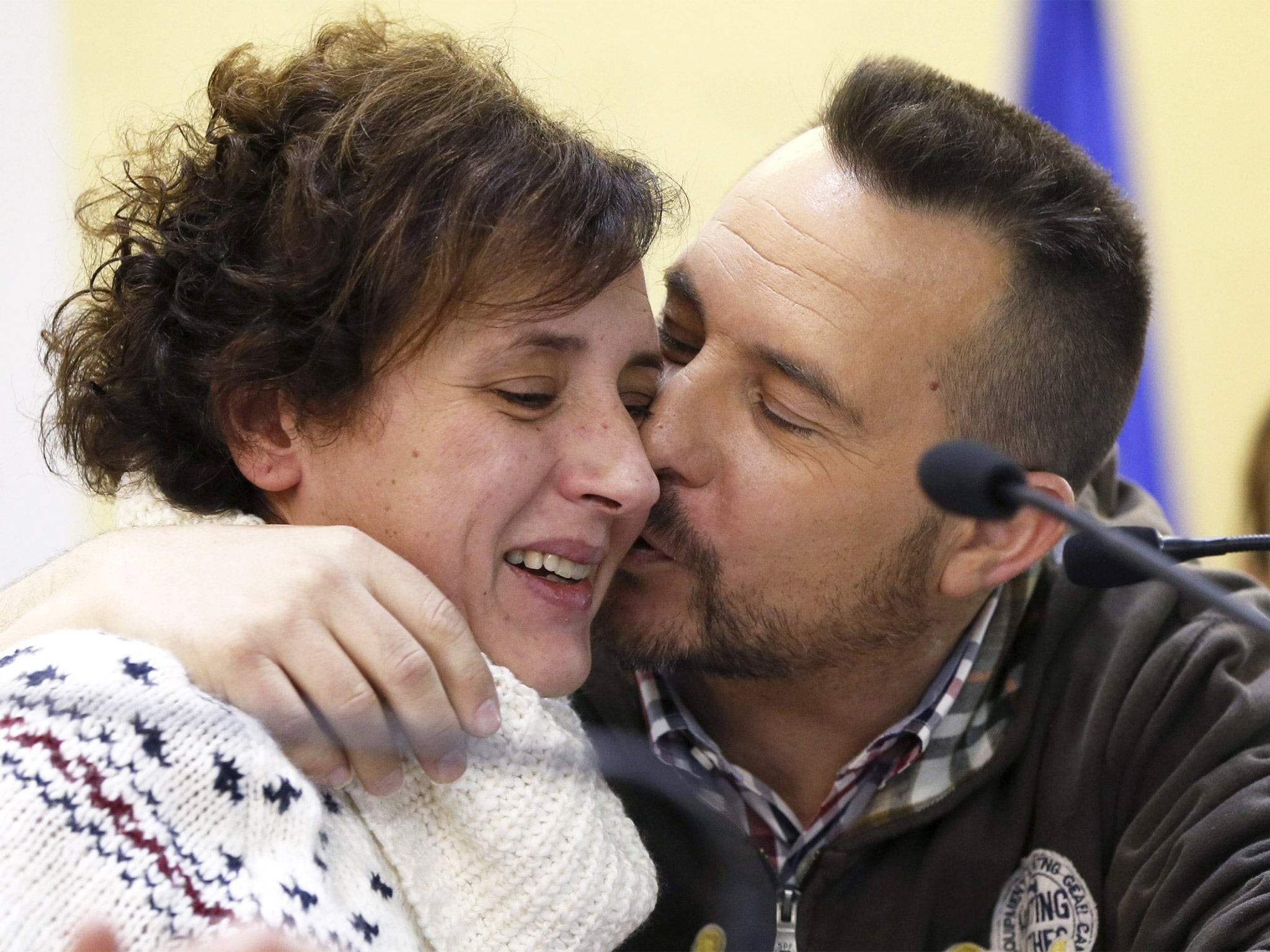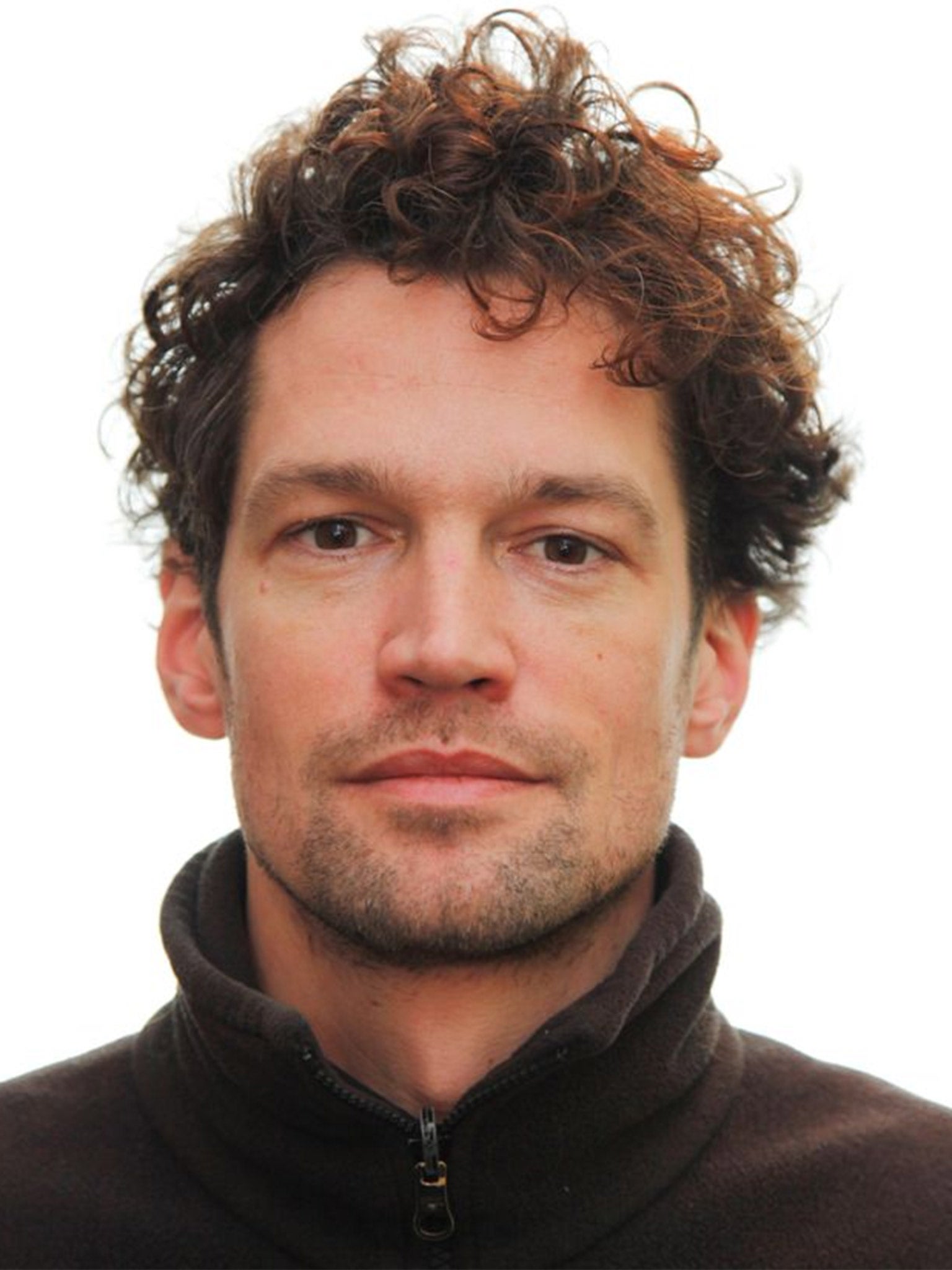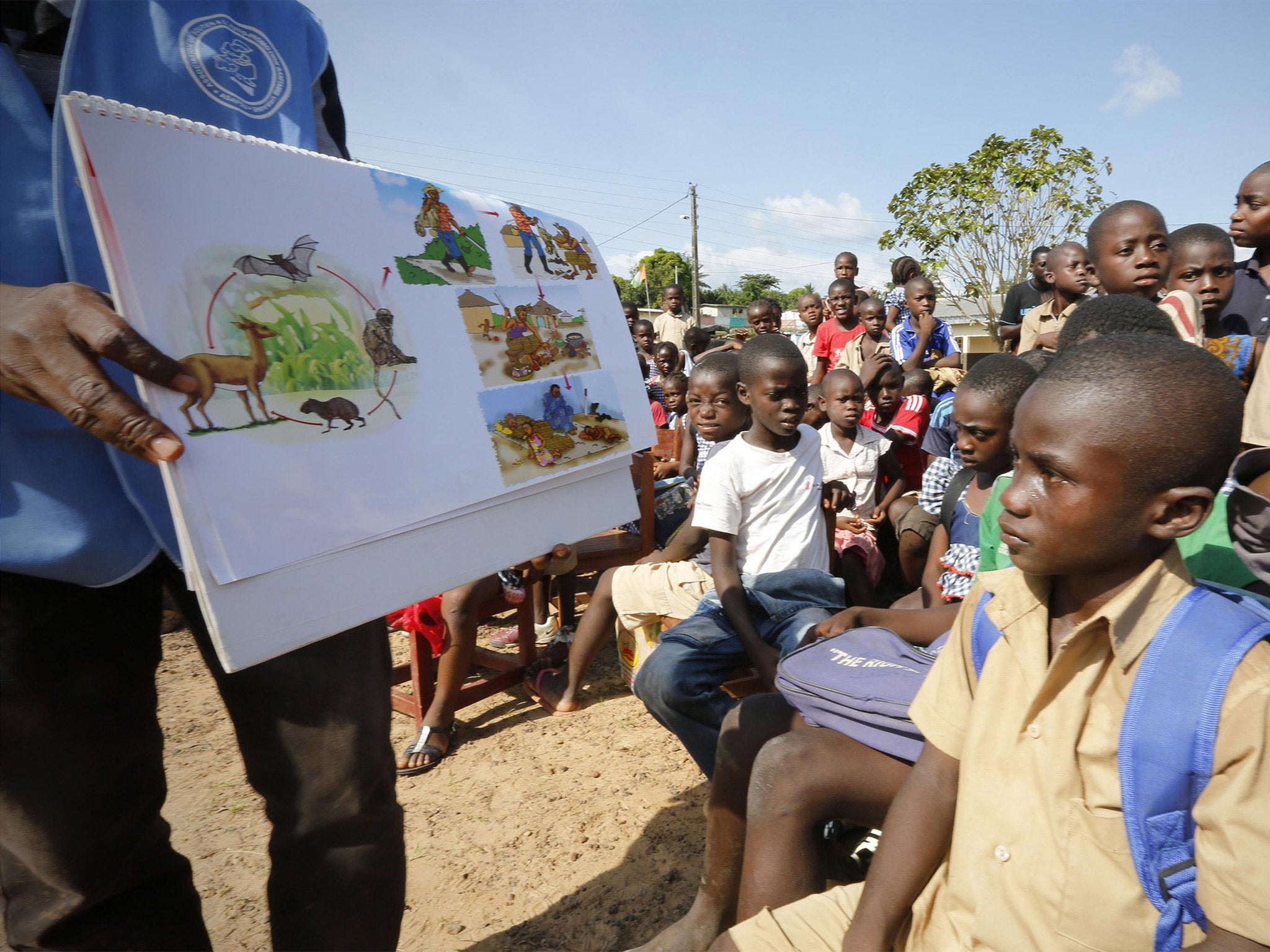Ebola outbreak: The scientist heading for Guinea who thinks he may find a cure
Researchers from the Belgian institute which first identified the virus have flown in to Guinea for first large-scale test of whether antibodies from survivors could be used to treat victims

Your support helps us to tell the story
From reproductive rights to climate change to Big Tech, The Independent is on the ground when the story is developing. Whether it's investigating the financials of Elon Musk's pro-Trump PAC or producing our latest documentary, 'The A Word', which shines a light on the American women fighting for reproductive rights, we know how important it is to parse out the facts from the messaging.
At such a critical moment in US history, we need reporters on the ground. Your donation allows us to keep sending journalists to speak to both sides of the story.
The Independent is trusted by Americans across the entire political spectrum. And unlike many other quality news outlets, we choose not to lock Americans out of our reporting and analysis with paywalls. We believe quality journalism should be available to everyone, paid for by those who can afford it.
Your support makes all the difference.Scientists from one of the world’s leading institutes of tropical medicine, which first discovered the Ebola virus in the 1970s flew out to Guinea yesterday to begin ground-breaking research into a possible cure for the disease, racing against the clock to find a treatment which will help stem the deaths in the current epidemic.
Johan van Griensven, lead researcher from Antwerp’s Institute of Tropical Medicine (ITM), told The Independent that he was “moderately positive” that the study into whether blood from Ebola survivors can treat new victims would yield results in time to have an impact.
“There surely is a real urgency to get started soon, yet careful preparation is of the essence,” he said just before boarding a plane to Guinea. “If the treatment works and Ebola survivors are willing to donate blood ... [then] I am confident that the treatment, in particular whole blood therapy, can be rolled-out across the affected countries,” he added.
The institute has the history and expertise to deal with the deadly virus: in 1976 a flask of blood taken from a sick Belgian nun working in Zaire arrived in Antwerp. ITM scientists were at first flummoxed by the disease, then diagnosed the first recorded case of Ebola. A subsequent research trip into the central African rainforests to try and understand and treat the mysterious new virus laid the groundwork for the way the Ebola is identified and contained today.

Now the institute is back at the forefront of the fight against the virus, and the scale of an epidemic which has killed more than 4,900 people in parts of West Africa means they are getting to work as quickly as possible. Mr Van Griensven and his colleague will be arriving in Guinea less than two weeks after the ITM got the final go-ahead and a €2.9m (£2.3m) grant from the European Union to lead an international consortium studying the experimental treatment.
Their first task is to identify a local partner and start recruiting up to 200 patients to take part in the study, which is backed by 13 leading institutes including the World Health Organisation, the London School of Hygiene and Tropical Medicine, Oxford University and France’s Institute Pasteur.
“Using antibodies contained in the blood of recovered patients is a well-established technique used for several other infectious diseases,” explained Mr Van Griensven.

“For Ebola it has been tried too already, albeit on a very small scale... What we need now is a well-designed study according to high ethical and scientific standards to confirm it works and see whether it can be scaled up.”
The institute has plenty of field experience to draw on. It was when trying to tackle a 1995 outbreak of the virus in Kikwit in the Democratic Republic of Congo (formerly Zaire) that ITM researchers first used blood transfusions to treat eight patients. Seven of them survived.
Blood from survivors has also been used in the United States to treat four people infected in the current Ebola outbreak. Three of them received plasma from Dr Kent Brantly, who himself was treated with the blood of the 14-year-old patient in Liberia. Teresa Romero, the Spanish nursing assistant who contracted Ebola while treating an infected missionary in Madrid, was also given plasma from the blood of a survivor. Yesterday she said she would be a willing to become a donor too. “If my blood works to cure people, I’m ready to give it to the last drop,” she said.
But Spanish doctors acknowledged that they had used so many different experimental treatments that it was impossible to pinpoint which one ultimately led to her recovery. The same problem applies to the other recent cases, and right now there remains no standard Ebola treatment beyond dealing with the individual symptoms.
Mr Van Griensven and his team are now determined to prove conclusively whether or not the antibodies in the blood used by immune systems to fight Ebola can indeed cure other patients.
Their research will be divided into two parts: up to 100 patients will be given whole-blood transfusions, while 100 others will be treated using just blood plasma, in which the antibodies are extracted from the blood of the survivor. The results of the two test groups will be compared with other patients who receive the same level of care but do not receive donor blood or plasma.
The WHO has said that blood therapies offer the most promising chance of finding a short-term treatment, and Mr Van Griensven says they have the added value of being relatively easy to then roll out across the worst-affected nations of Guinea, Liberia and Sierra Leone.
Other studies into experimental drugs led by pharmaceutical companies could come with large price tags.
“Whole-blood therapy via blood transfusion is a rather straightforward procedure,” he said. And while the blood plasma extraction was a more challenging operation, it could also be effective if one donor provided the antibodies to several patients.

His arrival in Guinea will be swiftly followed by that of blood transfusion experts from ITM’s Belgian and French partners, who land on 12 November. Oxford University and the University of Liverpool will be helping with the methodology and statistical analysis, while Britain’s Wellcome Trust has also offered additional funding if needed.
The first patients will begin treatment next month, with the results of the whole-blood transfusion group expected in March, followed two months later by the plasma group.
At the same time a number of research initiatives are taking place at public and private institutions all over the world to try to find a vaccine, while the British government is funding large treatment centres and testing laboratories in Sierra Leone.
But Mr Van Griensven believes their study goes beyond science and medicine, and will help give Ebola survivors a vital role in communities which once feared them.
“We see that Ebola survivors are often stigmatised in their communities,” he said. “It is important for people to know that survivors are no danger to their loved ones and the community at large. If people see that recovered patients can even help others to survive, this could mean a lot for how Ebola survivors are perceived.”
Join our commenting forum
Join thought-provoking conversations, follow other Independent readers and see their replies
Comments